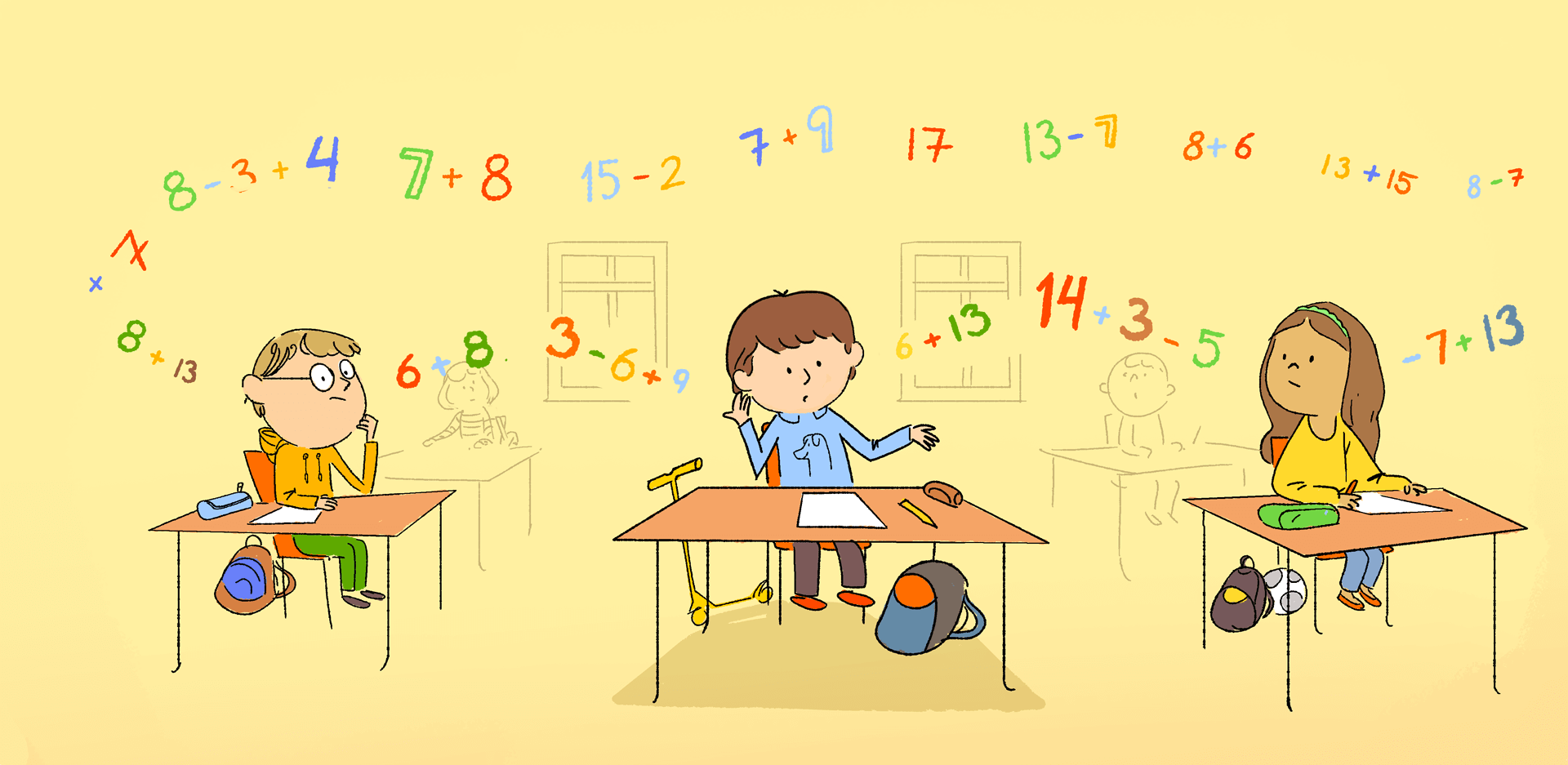This is Math Anxiety.
Math anxiety is the feeling of tension, nervousness, and general anxiety that interferes with the ability to solve mathematical problems. Maybe you felt it yourself when you were a kid. Perhaps your child is going through math anxiety right now.
Math anxiety has a negative effect on the ability to manipulate numbers. This fear of numbers can extend from situations in an academic setting, to life outside the classroom. It can happen as a child when taking a test, and it can carry into adulthood, making payments or budgeting.
But parents, it’s important to remember to say no to math anxiety – especially when talking to your kids about mathematics. Here are some tips on how to help talk to your child about math if you suffer from math anxiety.
Silence is Golden
At least when talking about your own math anxiety. Researchers from the University of Chicago, Sian Beilock and Susan Levine, found that children whose parents have math anxiety actually learned less math during the school year. Furthermore, they were more likely to have math anxiety themselves. However, there’s a catch! This only occurred when these “math-anxious” parents regularly helped their children with their homework.
This, by no means, suggests that you shouldn't help your kids with their homework. However, try to remain calm and talk through any questions they might have with a positive attitude towards the subject. Phrases like, “I dreaded math too when I was your age!” or “I was horrible at math” are extremely detrimental to your child. It may feel like you are offering a sense of solidarity and understanding – but in actuality, you may be giving the “ok” for your kids to give up on getting A’s in math.
Millions of adults are actually blocked from professional and personal opportunities because they fear or perform poorly in mathematics – these go back to the times when they were children – these negative experiences remain throughout their adults lives. So...
Know the Importance of Early Math Education
From learning long addition and subtraction, to advanced calculus, every mathematical concept builds on a pre-existing knowledge. If the math-foundation is weak, your child will not be able to successfully move onto more complex forms of mathematics. Every subject in school builds upon more elementary lessons. However, mathematics is truly a “building-block” subject.
At DragonBox, we think it is one fantastic building-block structure – and the great news is, so can your child. Regardless of your own math skills. Researchers at Oxford, UCL, and King’s College have found that a student’s grasp of various academic subjects depends more on their upbringing and environment than genetics.
So often parents give their kids a headstart when it comes to language and literacy by reading to their toddlers, and teaching the alphabet before kindergarten. However, getting a headstart in math usually results in learning to count, at the very most.
Us parents must promote numeracy the way literacy has been emphasized as a foundational education experience. By doing this, math anxiety can be prevented.
Remember, Math Anxiety is Curable.
What is math anxiety after all? It isn’t the inability to actually “do math”. It’s the fear of math. Some people fear public speaking – sweaty palms, fast-beating heart. “Speaking” isn’t the issue – most of us can ramble on with our friends, ranging from silly to serious topics. But in front of a crowd – here come the trembling legs and stuttering words.
It’s the same concept with math anxiety.
Studies have found that while there’s, of course, no danger in math – students with math anxiety actually trigger physiological symptoms, such as the release of the stress hormone cortisol, which results in the fight or flight response. As David Robson of the BBC (and B.A. in Mathematics) explains:
"Once the seed of the fear takes root, it may grow by itself: the more anxious you feel, the worse you perform, the more you shy away from maths and the more you worry when you face it again."
Certain settings and situations can be prompting your child’s math anxiety. Put your child in a positive learning environment, free from the stresses of standardized tests, or feeling embarrassed in a classroom, and it can help shed a whole new light on mathematics. The ability to perform mathematics successfully is there – your children and students just need some tools and activities to help find their confidence.
But like any form of anxiety…
The Best Way to Beat It, Is to Face It.
Say no to math anxiety. Your child can build a strong fluidity and flexibility with numbers if you help create a positive association to mathematics. Don't run away from math. Let your children learn math through play, help them discover the interesting places you can find math in your everyday life. Converse with them when you’re doing an activity that involves mathematics.
Math anxiety spreads. From parents to children, from classmate to classmate – but engaging in mathematics through daily activities, play, and positive learning can help extinguish those math-fears that arise out of stressful situations. Remember, math anxiety is not a math disability. It’s an inhibitor, a prevention from learning mathematics successfully. You can beat it. And your children can certainly beat it.
Now, go tackle that pesky math anxiety.
To know more!
See the latest news from the blog.
Get the Latest Apps & News!








